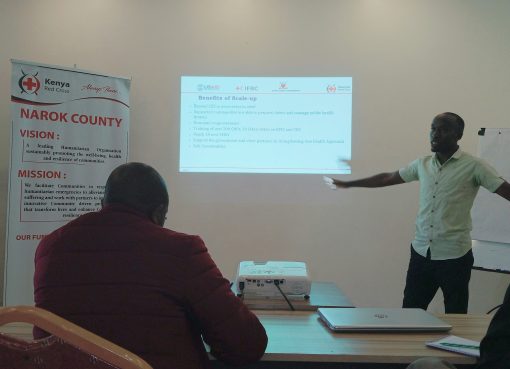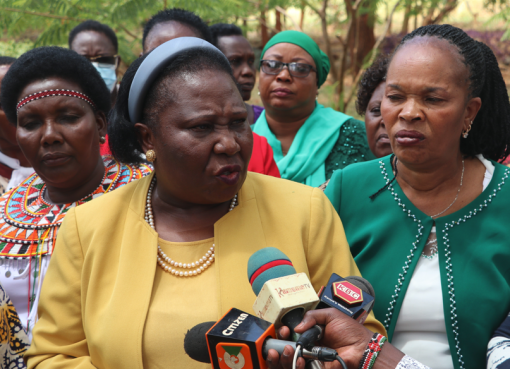Nakuru County has embarked on the provision of clean water for several communities as it gears towards enhancing water accessibility amidst huge outcry over a constant shortage of water.
County Executive Committee Member (CECM) for Water and Environment, Dr Nelson Maara, led site handover exercises in Bahati Sub-County for projects set to be implemented under the Locally-Led Climate Action (FLLoCA) Financing programmes.
Maara noted that these initiatives would not only improve water availability but also contribute to environmental sustainability.
In Kabatini Ward, over 2,500 residents of Thayu Sub-location will soon have access to safe and clean water for domestic use.
The Thayu Water Project will be equipped with solar panels to provide electricity for the project, a 12-metre-high mast for tank elevation, the laying of a 3.5 km pipeline, and the establishment of a tree nursery, a project estimated to cost Sh8.46 million and to be completed in 6 months.
In Lanet Ward, the project involves the rehabilitation and restoration of the Mereroni River and includes the establishment of tree nurseries, the construction of a masonry tank, and the planting of friendly tree species along a 2.5 km stretch of the Baruk Mereroni River at a cost of Sh2.75 million.
These measures are aimed at conserving the riparian area and preventing soil erosion.
Dr Maara emphasised the importance of protecting Kabatini’s water catchment areas, which serve as a primary source of water for Nakuru City.
He urged residents to support the government in implementing these projects for their long-term benefit.
He called upon the community to engage in conservation efforts, such as afforestation, to ensure a greener and more sustainable environment.
Other projects that have been handed over to contractors for rehabilitation or construction include the Muguga Health Centre Climate Smart Project in Nakuru East Ward, which integrates rainwater harvesting, greenhouse farming, and tree nurseries.
This project comprises such solar-powered pumps and a sustainable tree nursery with 500,000 seedlings to boost food security and climate resilience and is expected to cost Sh4.2 million.
The Mlima Ugali Borehole Project in Barut Ward is yet another beneficiary and is set to be equipped with a solar-powered system, construction of a perimeter wall, piping, and construction of a water kiosk that will provide 500 households with clean and reliable water.
The contractors, who are now on-site, are expected to commence work immediately and deliver these projects within 12 months.
The initiatives align with Nakuru Governor Susan Kihika’s vision for a water-secure and climate-resilient Nakuru, improving livelihoods, food security, and environmental sustainability across the county.
The Nakuru County has prioritised the development and improvement of water infrastructure throughout the county to increase accessibility to clean water for households.
The county faces a huge demand for the commodity, with the current supply being insufficient in the county classified as a water-scarce region.
Kihika has pledged her commitment to expanding the areas of water coverage and enhancing the sustainability of projects as a long-lasting solution to water woes.
Governor Kihika urged the contractors to undertake the contracts with due diligence and produce good results that will give Nakuru residents value for their money.
FLLoCA is a Kenyan programme, supported by the World Bank and other donors, aiming to strengthen local resilience to climate change by empowering counties to plan, budget, implement, and monitor climate action initiatives.
It is implemented through partnerships between the National Treasury, County Governments, the World Bank, and other donors.
It is jointly financed by the Government of Kenya, the World Bank, DANIDA, SIDA and the German government to create resilience at the local (and community) levels to mitigate the impact of climate change.
The programme commenced in the course of FY 2021/22 and is expected to run for five fiscal years.
By Jane Ngugi




